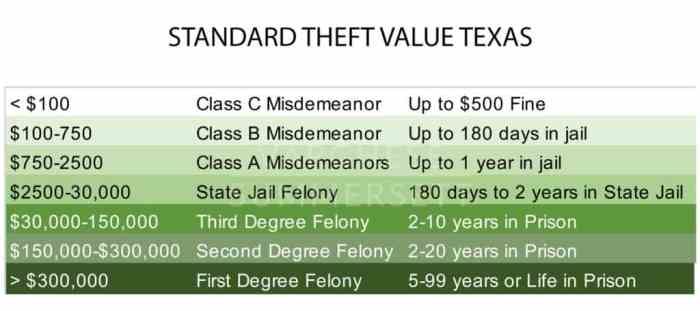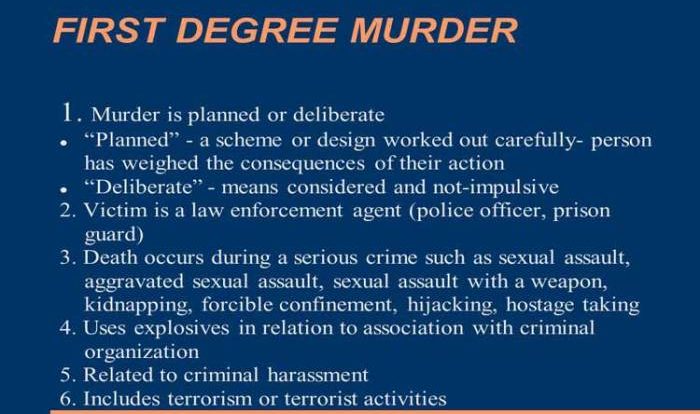Mail theft texas penal code – Mail theft is a serious offense in Texas, with penalties ranging from fines to imprisonment. Understanding the Texas Penal Code regarding mail theft can help you protect yourself from becoming a victim or facing criminal charges.
This comprehensive guide will delve into the definition, degrees, and penalties for mail theft in Texas. We’ll also explore common defenses and provide tips for preventing mail theft.
Mail Theft in Texas Penal Code: Mail Theft Texas Penal Code

The Texas Penal Code defines mail theft as the unlawful taking or possession of mail matter, including letters, packages, and other items delivered by the United States Postal Service or other authorized carriers.
Actions that constitute mail theft include:
- Stealing mail from a mailbox or other authorized receptacle
- Interfering with the delivery of mail
- Opening or destroying mail without authorization
- Possessing stolen mail
Degrees of Mail Theft
The Texas Penal Code classifies mail theft into three degrees, depending on the value of the stolen property and the intent of the offender:
- Mail Theft (Class A Misdemeanor): Stealing mail with a value of less than $1,500
- Mail Theft (State Jail Felony): Stealing mail with a value of $1,500 or more, or with the intent to commit another crime
- Mail Theft (Third-Degree Felony): Stealing mail containing personal identifying information, such as a Social Security number or driver’s license
Penalties for Mail Theft in Texas

The severity of penalties for mail theft in Texas varies depending on the degree of the offense. The Texas Penal Code Artikels four degrees of mail theft, each with its own set of definitions and penalties.
The following table provides an overview of the different degrees of mail theft, their definitions, and the range of penalties for each degree:
Degrees of Mail Theft and Penalties
| Degree | Definition | Penalty Range |
|---|---|---|
| First Degree | Theft of mail matter containing a credit card, debit card, or other financial instrument | Felony; 2-10 years in prison and a fine of up to $10,000 |
| Second Degree | Theft of mail matter containing personal identifying information, such as a Social Security number or driver’s license | Felony; 1-5 years in prison and a fine of up to $5,000 |
| Third Degree | Theft of any other type of mail matter | Misdemeanor; up to 1 year in jail and a fine of up to $2,000 |
| Fourth Degree | Attempted mail theft | Misdemeanor; up to 180 days in jail and a fine of up to $1,000 |
In addition to the penalties listed above, a person convicted of mail theft may also be subject to mitigating or aggravating factors that can affect their sentencing. For example, a person who has a prior criminal record may receive a harsher sentence, while a person who voluntarily returns the stolen mail may receive a more lenient sentence.
A conviction for mail theft can have serious consequences, including fines, imprisonment, and loss of civil rights. It is important to be aware of the penalties for mail theft and to take steps to avoid engaging in this type of crime.
Mail theft is a serious crime in Texas, with penalties ranging from fines to prison time. If you’re wondering about the complexities of heroism, consider the thought-provoking question: is Harrison Bergeron a hero ? Back to mail theft, remember that protecting your mail is crucial to avoid identity theft and other consequences.
Defenses to Mail Theft Charges

In Texas, there are several common defenses to mail theft charges. These defenses can be used to challenge the prosecution’s case and potentially lead to a dismissal or acquittal.
Burden of Proof, Mail theft texas penal code
In mail theft cases, the prosecution bears the burden of proving beyond a reasonable doubt that the defendant knowingly and willfully stole or attempted to steal mail. The defendant is not required to prove their innocence.
Common Defenses
One common defense to mail theft charges is lack of knowledge or intent. The defendant may argue that they did not know the item they took was mail, or that they did not intend to steal it. For example, a defendant may argue that they mistook a package for trash or that they believed the item was abandoned.Another
common defense is consent. The defendant may argue that the owner of the mail consented to the defendant taking it. For example, a defendant may argue that they were authorized to pick up the mail on behalf of the owner.Finally,
the defendant may argue that they had a legal right to the mail. For example, a defendant may argue that they were the intended recipient of the mail or that they had a court order authorizing them to seize the mail.
Supporting Evidence
The defendant can support these defenses by presenting evidence that supports their claims. For example, the defendant may present evidence that they did not know the item was mail, such as testimony from witnesses who saw the defendant take the item.
The defendant may also present evidence of consent, such as a written agreement or testimony from the owner of the mail.The strength of the defendant’s defense will depend on the specific facts of the case and the evidence that is available to support their claims.
Prevention of Mail Theft

Preventing mail theft requires a multifaceted approach involving individuals, law enforcement, and the community. Implementing best practices and being aware of common tactics can help safeguard your mail from falling into the wrong hands.
Community Involvement
Community involvement plays a crucial role in deterring mail theft. Neighborhood watch programs and reporting suspicious activity to authorities can help create a safer environment for mail delivery. Residents should also be vigilant in monitoring their mailboxes and reporting any damage or tampering.
Law Enforcement Cooperation
Law enforcement agencies are committed to combating mail theft. Residents should cooperate with investigations and provide any information that may assist in identifying and apprehending suspects. Reporting mail theft promptly and providing clear descriptions of suspicious individuals or vehicles can help law enforcement track down perpetrators.
Personal Precautions
- Install a locking mailbox or a mailbox with an anti-theft device.
- Request a hold on mail delivery when you’re away from home for extended periods.
- Avoid leaving mail in your mailbox overnight or over weekends.
li>Consider using a post office box for sensitive or valuable mail.
Resources for Victims
If you become a victim of mail theft, report it to the United States Postal Inspection Service (USPIS) and your local law enforcement agency. The USPIS is responsible for investigating mail theft and can provide assistance in recovering stolen mail or compensating for losses.
Additionally, victims can contact the Federal Trade Commission (FTC) to report identity theft or fraud resulting from mail theft.
General Inquiries
What constitutes mail theft under Texas law?
Mail theft is defined as knowingly taking or attempting to take mail from an authorized depository, such as a mailbox or post office.
What are the penalties for mail theft in Texas?
Penalties for mail theft vary depending on the degree of the offense, ranging from a Class C misdemeanor to a second-degree felony.
What are some common defenses to mail theft charges?
Common defenses include lack of intent, mistaken identity, and duress.


